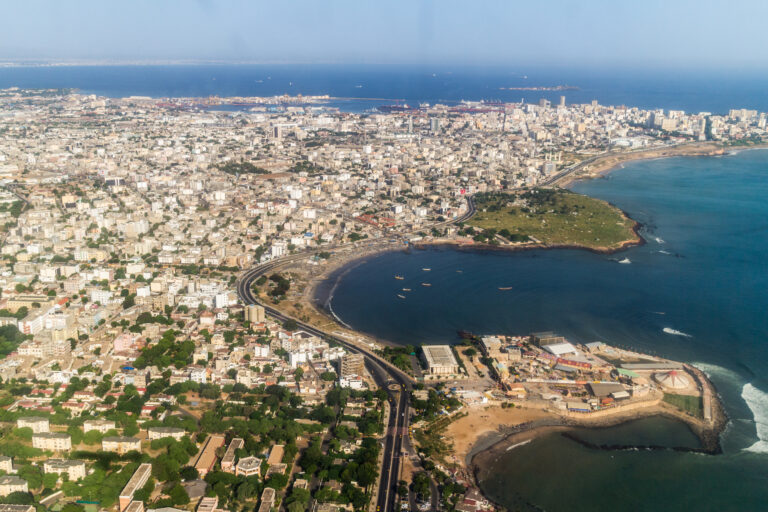Waterkeeper Alliance Delivers Natural Water Systems Declaration to United Nations
By: Waterkeeper Alliance

Today, as part of its participation in the 2023 UN Water Conference, Waterkeeper Alliance delivered a declaration on behalf of a global coalition calling for the UN to prioritize the protection of natural water systems as a human right. This declaration is essential to making progress on Sustainable Development Goal (SDG) 6 and is already endorsed by more than 100 water organizations from over 25 countries on six continents.
“Natural water systems have historically provided essential services that support life on many different levels and are not immune to human-influenced threat multipliers like climate change, fossil fuel and mineral exploitation, pollution, and development,” said Marc Yaggi, CEO of Waterkeeper Alliance. “A failure to protect water in nature will have dire consequences to the vulnerable communities and fragile ecosystems they support. We must ensure all facets of water management are factored into solutions for availability, security, and sustainability.”
According to the UN, approximately 5 billion people worldwide will be impacted by increasingly limited access to clean water by 2050, making it a core focus of sustainable development and a fundamental underpinning for all SDGs. Although the UN has long recognized clean water and sanitation as a human right, the UN Secretary-General has acknowledged that we are alarmingly off track on water-related SDGs. Without access to clean, healthy, and abundant water, the global community will not make tangible progress on climate change, poverty, hunger, equality, peace, or any of the other laudable goals.
The declaration takes it a step further by urging the expansion of SDG 6 — which aims to ensure water and sanitation for all, often through man-made infrastructure — to include water for nature as a human right, particularly for river-dependent, coastal, and island communities. Pollution, habitat loss, dams, and water diversions all threaten the viability of thriving ecosystems that support biodiversity, fisheries, drinking water needs, traditional harvest and Indigenous practices, cultural and spiritual traditions and values, wildlife habitat, and most pressing: climate control.
“Senegal has over 700 km of coast, with many people working on the sea. Fishing is very important for our food security. We need better plans to preserve our coast, the sea, fishing, and climate. We have to protect these resources and the quality of water for the next generation,” said Mbacké Seck, Hann Baykeeper, Dakar, Sénégal. “Senegal signed the Paris Accord for climate action but there are now plans to begin oil drilling on our coast this year. How can we be serious about climate and water protections if we start oil drilling now?”
“Many of the island communities of The Bahamas rely heavily on the fishing industry whether for personal consumption, local vendors, or export to international markets,” added Rashema Ingraham of Waterkeepers Bahamas. “The Bahamas is an ocean nation, where nearly 95% of our country is the waters that surround our small islands. Negative impacts of climate change and warming waters already have a noticeable presence. Stronger action must be taken to protect our largest natural resource: the water that sustains our people and supports our tourism and fishing economies.”
Organizations from around the world including Waterkeepers from The Bahamas, Colombia, Israel, and Senegal are participating in this historic conference to elevate issues, exchange knowledge, and explore solutions for ongoing and escalating threats to clean water. As change accelerators who play a vital role in protecting everyone’s right to clean water, Waterkeeper Alliance and Waterkeeper groups proactively engage with the UN, UN-Water, rights-holders, and other stakeholders to strengthen international agreements; share valuable grassroots expertise and scientific knowledge; inform governments of community needs and impacts; and identify “on the ground” realities of policy decisions.
“As civil society and water advocates, we work hard to be heard and to push governments and lawmakers to change policies that halt pollution,” said Liliana Guerrero, Bocas de Ceniza Waterkeeper, Barranquilla, Colombia. “We call on the UN to prioritize protection of natural water systems with specific actions to help achieve the goals of Sustainable Development Goal 6 – Clean Water and Sanitation- for all.”